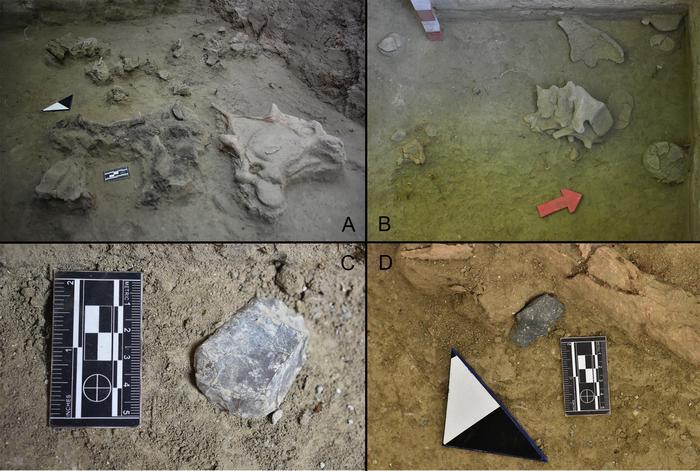 SANTIAGO, CHILE—Newsweek reports that a team of archaeologists led by Rafael Labarca of the Pontifical Catholic University of Chile has uncovered a 12,000-year-old site in the Tagua Tagua lake region of central Chile where hunter-gatherers butchered a gomphothere, an extinct relative of the modern elephant. Similar sites have previously been found in the region, which is thought to have supported hunter-gatherers with abundant, diverse, and predictable resources. This site may have been used as a temporary hunting camp during the dry season, based upon the presence of cactus seeds and eggshells in the soil. Evidence for the grinding of the pigment red ocher, and charred remains of plants and small animals such as frogs and birds, were also recovered. Read the original scholarly article about this research in PLOS ONE. To read about gomphothere bones found in Sonora, go to "World Roundup: Mexico."
SANTIAGO, CHILE—Newsweek reports that a team of archaeologists led by Rafael Labarca of the Pontifical Catholic University of Chile has uncovered a 12,000-year-old site in the Tagua Tagua lake region of central Chile where hunter-gatherers butchered a gomphothere, an extinct relative of the modern elephant. Similar sites have previously been found in the region, which is thought to have supported hunter-gatherers with abundant, diverse, and predictable resources. This site may have been used as a temporary hunting camp during the dry season, based upon the presence of cactus seeds and eggshells in the soil. Evidence for the grinding of the pigment red ocher, and charred remains of plants and small animals such as frogs and birds, were also recovered. Read the original scholarly article about this research in PLOS ONE. To read about gomphothere bones found in Sonora, go to "World Roundup: Mexico."
Gomphothere Butchering Camp Discovered in Chile
